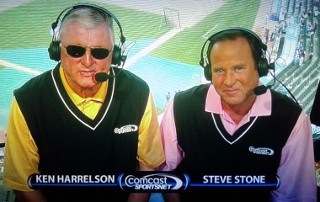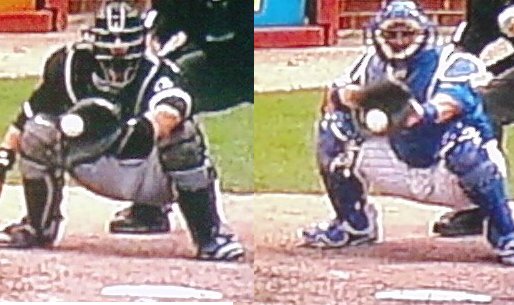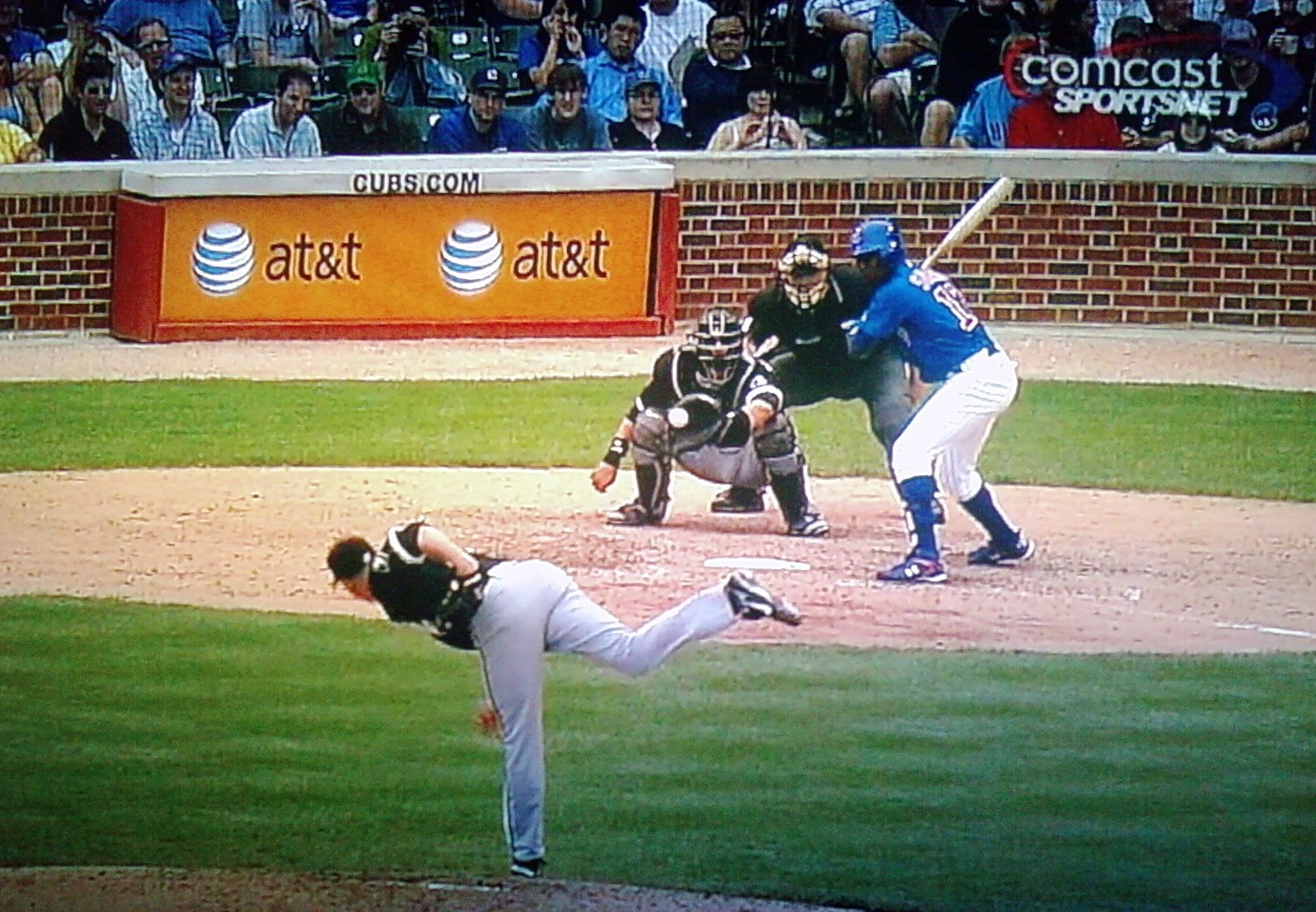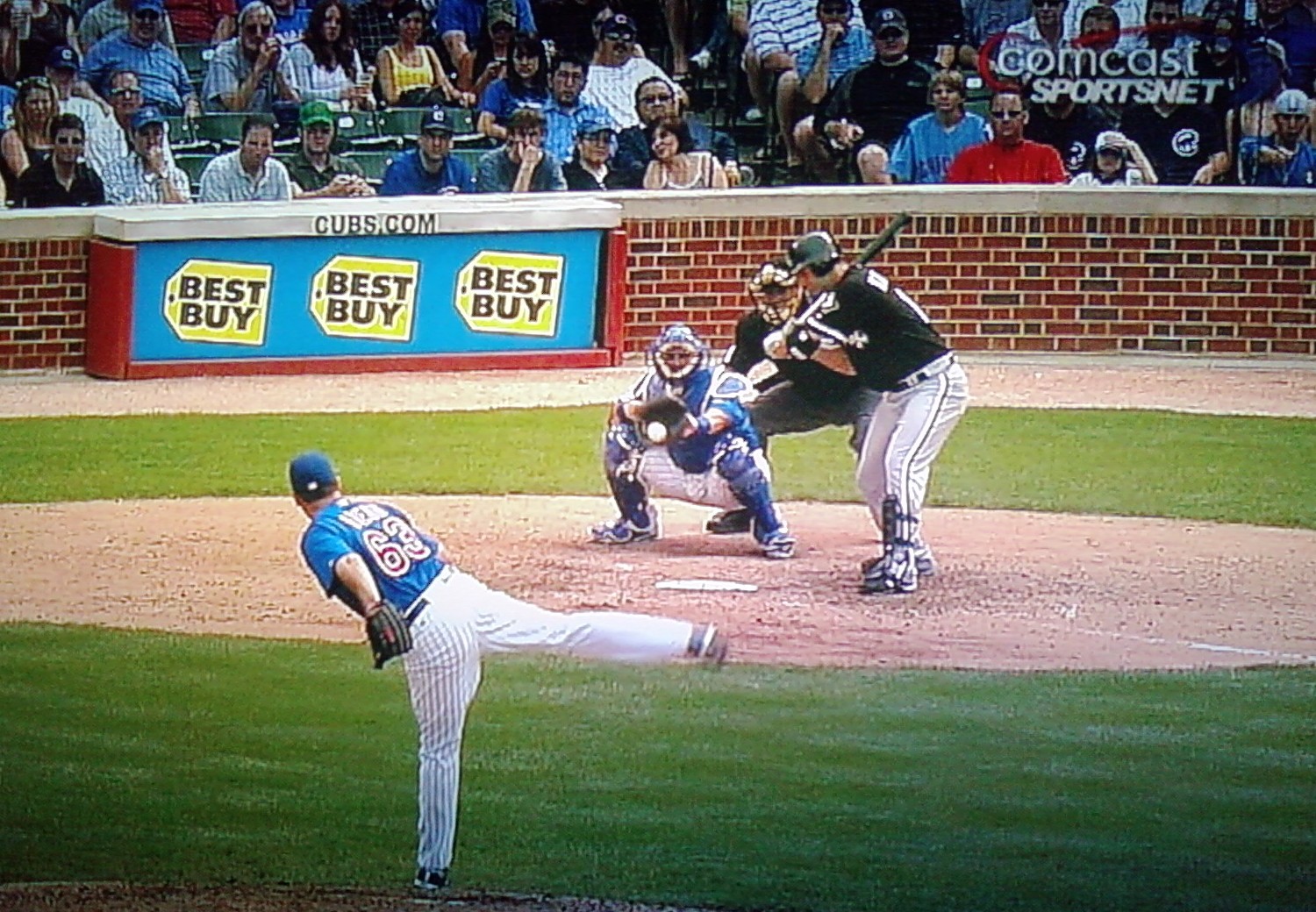This is the first in what will be an ongoing series.
I derive an inordinate amount of joy from finding odd or unexpected early appearances from actors who I’ve become familiar with later in their careers. So much so that I tend to collect a mental inventory of such appearances, and so I thought it’d be fun to start to catalog them. Most of these aren’t really unknown—Internet searches would readily turn up plenty of mentions, jokes, and discussions—but they tend to be a little obscure and more often than not largely forgotten. It’s my intention to post about some of these as I find them, as well as to write about those from my already-established mental backlog from time to time, as a continuing series.
One of the funniest such roles comes from Jon Favreau. In 1994, he made an appearance in season 5, episode 20 of Seinfeld. This show is a veritable treasure trove for finding bit parts and cameos by actors who would later be much more recognizable, several of whom became established television actors and would go on to star in their own series. None are as awkward—nor as presumably embarrassing—as this one, though.
In the episode, entitled “The Fire,” George Costanza finds himself at a children’s birthday party arguing with the hired entertainment about one of the forebears of his profession. In the role of the clown is Jon Favreau, who two years later would star in the generation-defining Swingers, which he also wrote. From there, several other film roles would come, as well as further television appearances (including a stint on Friends where he played a software billionaire with unrealistic dreams of becoming an Ultimate Fighting Champion). These days, Favreau is establishing himself as a respected director, coming off the resounding success of Iron Man, the sequel to which is currently in production.
Back in 1994, though, he was Eric the Clown:
“This is just a gig, it’s not my life.”
Status: In theaters (opened 6/19/09)
Directed By: Harold Ramis
Written By: Harold Ramis & Gene Stupnitsky & Lee Eisenberg
Cinematographer: Alar Kivilo
Starring: Jack Black, Michael Cera, David Cross
This is funny: An early-history buffoon named Zed (Jack Black), trying to prove his skills as a hunter, notices the tracks of other humans and, proudly demonstrating his tracking ability, notes that “they stopped here to poop.” This is not: He picks up the shit and eats it. Such miscalculations are par for the course with Year One, a comedy that goes overboard in all the wrong ways and squanders a lot of would-be funny situations with ill-conceived, dumb humor, while exhibiting absolutely no sense of cohesion in the process.
I have an idea of how this movie was written: Harold Ramis, Gene Stupnitsky, and Lee Eisenberg got high and made themselves laugh imagining corny situations in Biblical times, and then wrote these situations out as scenes of a film, loosely stitching them together with a clichéd rescue-the-maidens plot device. Like so many Saturday Night Live sketches of the past decade, most of these scenes have the distinct feel of something that probably sounded funny in its conception, but just doesn’t play up to its potential as written. Come to think of it, maybe I just happened upon some insight into the SNL writing process, too.
In a formula that is sure to make a sub-100 minute movie feel like it’s 3 hours long, Year One‘s first act is its funniest. Zed the hunter bumbles his way around his tribe’s village, and eventually gets banished for eating from the Tree of Knowledge of Good and Evil. His friend Oh (Michael Cera), the gatherer, leaves the village with him as they back their way into their quest. Most of the early expository scenes (if you can call them that) are most readily characterized by the laziness of their production: after setting up a few relatively funny scenarios, the film is quick to drop them without anything resembling resolution, only to move on to the next incompletely-conceived scenario.
Oh, for instance, is attacked by a boa constrictor, which slowly wraps itself around him while Michael Cera spouts pithy Michael Cera dialogue. We then abruptly cut to the next scene to find him back in the tribe’s village, unharmed, with no explanation of how he was able to escape and no knowledge of what became of the snake. (This being a movie set in Biblical times, I thought it reasonable to expect that this snake—which appears beside the tree with its forbidden fruit—was a well-known character, but if that was the case it’s never clarified. The snake also is denied any dialogue with which to explain itself.)
In another scene, a panther leaps out of a tree and attacks Oh (this time he doesn’t even have a chance to spout pithy Michael Cera dialogue). We immediately cut again to the next scene, and while at least this time he has some scratches on his legs, proving that the filmmakers didn’t simply forget about the preceding encounter, again there is no mention of how he escaped.
As they go about their quest to rescue their love interests (Juno Temple and June Diane Raphael) from slavery, Zed and Oh meet several Biblical characters, all played by quality actors whose cameos provide most of the comedic high points of the film: Cain and Abel (David Cross and Paul Rudd), Abraham and Isaac (Hank Azaria and Christopher Mintz-Plasse), even briefly Adam and Eve (Ramis and Rhoda Grffis). There are further cameos by Bill Hader as a pissed-off shaman, Kyle Gass as a eunuch, and… well, the list goes on and on. Like most of the film’s individual scenes themselves, these characters are generally funny at first sight, but then, quickly realizing they don’t have much to do, their charm wears off along with their comedic value. The possible exception is David Cross, who as I’ve mentioned before is one of my favorite comedians. He pops up repeatedly throughout the movie, usually with a funny quip, always overacting just enough to try to eek out more laughs than are actually there. He also gets the best—if not the most obvious—line of the movie: “You wanna know the best thing about Sodom? It’s the sodomy!” Now that’s funny.
It’s almost tempting to view this as a time travel movie. Black, Cera, and Cross behave exactly as they do in every other movie they’ve been in (most of which take place about 2000 years later than this one), while the rest of the characters around them vaguely posture as if they’re actually from Biblical times. I found myself wondering if the straight-forward approach wouldn’t have been a better one to take, in fact. While Year One does go for a bit of a fish-out-of-water feel at times, though, it’s certainly no Army of Darkness in that department.
There is one good running gag that comes from the Biblical setting, involving repeated use of the phrase “to lay with” and its variants as a euphemism for sex. It’s a joke that never gets old no matter how many times it’s used throughout the film. Unfortunately it’s the only joke for which this can be said.
Not that this movie is going for any semblance of historical accuracy, but the mish-mash style of its storytelling only adds to the feeling that it’s little more than a disjointed collection of uncompleted sketch ideas. Even its very title is suspect: I’m no theology expert or anything, but I’m pretty sure that the story of Abraham choosing his imaginary friend over his son comes significantly prior to the whole phantom semen thing. (So much earlier, it might even come from a different book altogether… but I’m no expert.) Never mind that, though—y’know what else is funny? Circumcision!
Comments Off on Before Comedy
One of the things I’ve found (to my pleasant surprise) that I enjoy about having the MLB Extra Innings package on DirecTV is that I get to watch a lot of baseball games with other teams’ announcers calling the plays. While the quality of the commentary varies widely—particularly in regards to the hometown bias factor—it’s kind of nice to watch some games from the other team’s point of view. I also get a nice sampling of what kinds of coverage and commentary there are around baseball. A lot of the time this gets annoying, though, especially with some of the smaller-market teams, which aren’t able to attract (and pay for) quality announcers.
In the NL Central, which is the majority of the baseball that I end up watching, the Cardinals, Pirates, and Reds tend to have announcers that shade more towards the “hillbilly fan” end of the spectrum, while the Cubs, Astros, and Brewers have guys who come across more as professional broadcasters in their booths. In the case of the Cubs and Astros, I think this is because they’re major-market teams; in the case of the Brewers, it’s because they have Hall of Fame announcer Bob Uecker calling the plays, who’s one of the best around. While I’m obviously preferential towards Len and Bob—I think they provide a tasteful amount of home-team favoritism while still keeping things professional, although they are occasionally a bit dry—it’s surprisingly fun to give some of the other announcers a listen from time to time.
 That’s not to say that they’re all good, and tonight’s Cubs-White Sox game provided a remarkably obvious example of how bad some announcers can be—especially when they’re frustrated with their team and overly invested in it to the point of becoming unprofessional. In this case, we have Ken “Hawk” Harrelson, who has called games for the South Siders for 20 seasons now. Most Sox fans I know tend to like Hawk’s unabashedly biased play-calling, which he often supplements with shameless cheerleading. This is all well and good, if that’s the kind of commentary you prefer. The flip side of that coin, though, is that he sometimes comes across as the worst kind of fan: the umpires are always out to get the Sox, the opposition sometimes makes lucky plays while the Sox are just downright talented, things like that. I’m actually fine with this; while I think I’d find it a little embarrassing if my team’s announcers were so partisan, Sox fans seem to like him and appreciate his style, and that’s cool with me. Just don’t flat-out lie about the game you’re calling, please.
That’s not to say that they’re all good, and tonight’s Cubs-White Sox game provided a remarkably obvious example of how bad some announcers can be—especially when they’re frustrated with their team and overly invested in it to the point of becoming unprofessional. In this case, we have Ken “Hawk” Harrelson, who has called games for the South Siders for 20 seasons now. Most Sox fans I know tend to like Hawk’s unabashedly biased play-calling, which he often supplements with shameless cheerleading. This is all well and good, if that’s the kind of commentary you prefer. The flip side of that coin, though, is that he sometimes comes across as the worst kind of fan: the umpires are always out to get the Sox, the opposition sometimes makes lucky plays while the Sox are just downright talented, things like that. I’m actually fine with this; while I think I’d find it a little embarrassing if my team’s announcers were so partisan, Sox fans seem to like him and appreciate his style, and that’s cool with me. Just don’t flat-out lie about the game you’re calling, please.
I’ll try to set the stage: it’s the bottom of the 8th inning, with the White Sox winning 5-1. The Cubs’ first batter (Micah Hoffpauir) reaches base on an error. The next batter is Alfonso Soriano, who with 2 strikes in the count gets this pitch:
The Hawk is convinced that’s an obvious strike: “That ball had the plate. Had the outside edge of the corner.” The above picture is from the replay they showed, which Hawk was convinced reaffirmed his belief that it should’ve been a called third strike. His color man, Steve Stone (formerly the Cubs’ color commentator), tries to remain more diplomatic about it, but humors his partner just the same and agrees with him that it was probably a strike. Honestly, I think it’s one of those pitches that could’ve been called either way, but in the picture above I think it’s definitely more ball than strike. But whatever, the subjectivity of the umpire calling balls and strikes is part of the game, right?
On the next pitch, Soriano gets a base hit. The next two batters (Ryan Theriot and Milton Bradley) are retired, bringing the hot-streak-riding Derrek Lee to the plate with 2 outs, who proceeds to hit a 3-run homer. (Sub-rant: Why doesn’t MLB offer the ability to embed their videos?)
Next up is Geovany Soto, who also hits a home run, tying the game. Harrelson proceeds to lose it, repeatedly referring to the Sox giving up “4 unearned runs” to allow the Cubs to tie the game. For those of you keeping score, only the run scored by Hoffpauir was actually unearned, because he reached on an error. Soriano had a base hit, and Lee and Soto hit home runs, all of which are most decidedly earned runs on every score sheet except for Hawk’s. (I think he might’ve been trying to imply that Soriano reaching base was the result of an “error” on the home plate umpire, but he never clarified). So much for accurately reporting the events of the game. (Update: Apparently I am incorrect in my interpretation of how these runs should be scored; see the comments below for clarification.)
One of my biggest pet peeves with sports announcers in general is that they like to imply that if you changed the outcome of a single play, it is reasonable to assume that ensuing plays’ outcomes will remain unchanged. Hawk is happy to commit this commentator sin as well: he believes that had Soriano gotten out on what he felt should’ve been a called third strike, then Theriot and Bradley would’ve proceeded to get out in the same fashion as they actually did, and the inning would’ve been over without the Cubs scoring any runs, much less 4. As if them batting with an additional out, or with fewer runners on base, would be the same. Who’s to say the same pitches would’ve been thrown to them, with the same amount of success, their swings would’ve been the same, and all of the other little variables that contribute to how a single at-bat plays out would remain invariant? It’s nonsensical to think this way. (And in fact, I tend to believe that any time one endeavors to comment on what “would have” happened in almost any situation—sports or otherwise—they’re likely doing little more than demonstrating willful ignorance… Generalizations like “if that bomb had gone off, people would have died” aside, of course.)
It doesn’t quite end there. In the top of the 9th inning, with Paul Konerko batting, he gets thrown “the same pitch” (according to Harrelson), which is this time called a strike.
Hawk can’t take it: “Why is that a strike on him, but it wasn’t a strike on Soriano?” he asks. I think the proof is in the pictures, which incidentally were taken from the same replays he was watching while continuing to whine about the supposedly-biased umpiring.
In the bottom of the 9th, Soriano—the beneficiary of the non-strike call that got the Cubs’ rally started in the first place—knocked in the game-winning run, just to rub it in. “5 to 1 lead going into the bottom of the 8th inning… 4 unearned runs… and they pitch to Soriano, and he gets the base hit,” Hawk summarizes.
There’s nothing wrong with being passionate about your team, even in the case of an announcer. In fact, this is one of the things that makes baseball unique: each team has their own set of commentators, who bring their own perspective to the games, and can typically assume that their audience consists largely of that team’s fan base. But going overboard by trying to frame the events of the game you’re calling in an untruthful manner, and then whining about it on top of that, isn’t something I can imagine anybody enjoying. (Stone, I should say, remained silent every time Hawk mentioned the “4 unearned runs,” presumably not wanting to get into an on-air fight with his incensed partner.)
At least he faithfully reported the outcome of the game: Cubs 6, White Sox 5. Whether the runs were earned or not.

Status: In theaters (opened 6/5/09)
Directed By: Todd Phillips
Written By: Jon Lucas & Scott Moore
Cinematographer: Lawrence Sher
Starring: Bradley Cooper, Ed Helms, Zach Galifianakis, Justin Bartha
With 2003’s Old School, director Todd Phillips transformed Will Ferrell from an occasionally-funny SNL cast member who had found his way into some mid-level film roles (e.g., over-characterized villains in Austin Powers and Zoolander) into a major comedy star. I can only hope that with his newest film, The Hangover, Phillips has achieved a similar feat with Zach Galifianakis. While the comedian has had minor roles in a few films as of late (What Happens in Vegas…)—as well as being one of the comedic highlights of Largo—this is sure to be his breakout role, as the awkward, hirsute brother-in-law-to-be of Doug (Justin Bartha), whose bachelor party in Vegas leads to the hungover confusion of the film’s title which drives its plot.
The ringleader of the group is Phil (Bradley Cooper), who assumes the Vince Vaughn role of the man looking to escape his boring family life in favor of an excuse to party with “the guys.” They’re also joined by Stu (Ed Helms), who like Luke Wilson in the previous film is a pathetic cuckold with a crazy streak of his own. While the characters and premise here have a lot in common with Old School, though, the manner in which this movie proceeds is a bit less juvenile—though, admittedly, being less juvenile than Old School isn’t exactly a difficult achievement.
After setting up the what (bachelor party) and the where (Vegas) of the main characters’ ambitions, we skip over the how, finding them as they awaken the following day with no recollection of what transpired the night before. There are plenty of clues sprinkled throughout their hotel room (which looks like a scene from Fear and Loathing in Las Vegas) to get them started on reconstructing their memories of the night before—which becomes imperative when they realize they have no idea where Doug, the bachelor, ended up. The middle act is a cleverly twisted mystery story, with the three guys searching for clues and following leads in an attempt to figure out what happened. This is a fun structure, lending itself well to a lot of jokes of the shocking surprise variety.
As I’ve intimated, Zach Galifianakis largely steals the show. His character has some wonderfully absurd lines, which Galifianakis delivers in a hilariously deadpan manner. He’s not as much of a buffoon as my comparisons to Will Ferrell might make it sound like, instead going for a more subtle form of humor that is nevertheless just as pleasingly crass. Bradley Cooper is as capable a star these days as Luke Wilson is, and his character steers the plot ably. The movie is fearless in its pursuit of comedy, willing to go everywhere and anywhere for a laugh, from baby abuse to a little naked Chinese guy (Ken Jeong, who’s recognizable as the asshole doctor from Knocked Up). There’s also a hilarious cameo from Mike Tyson and some zany hijinks involving a stolen tiger that somehow manage to play a lot more actually-funny than might be expected.
There’s nothing terribly great about this movie, but it’s a solid comedy that knows what it’s going for and has the balls to do whatever it takes to get there. Typically in these types of films the story actually ends up getting in the way of the comedy, but that is pleasantly not the case here for the most part. On the other hand, this means that there is virtually no character development to speak of, and few revelations beyond those that are directly on the surface. I don’t necessarily think that’s a bad thing, though—the film makes no pretensions to doing anything other than putting its characters in outlandish situations and deriving laughs from them, and it does so pretty well.
I may be overstating one thing: Zach Galifianakis is actually only the second-best thing to appear in this movie. The first is Heather Graham‘s boob. The Hangover is full of pleasant surprises.
Comments Off on Pretty Well Hung






